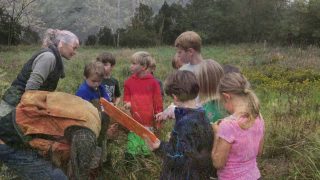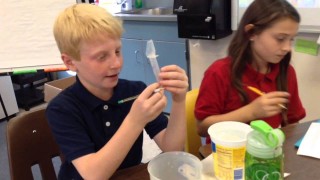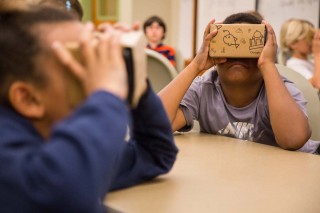Here at Powhatan, we use an approach called NEAL (Nature Enhanced Approach to Learning). NEAL is a lens through which we can teach any or all components of our curriculum. We use it to bring our students outside into the natural world and to bring the natural world indoors to our students. An authentic experience like the Wetlands Field Day elevates the learning environment with a hands-on approach to applying their studies to the real world.
Our third graders have been studying the importance of the wetlands on the Crocker Conservancy. Students put on their muck boots and waded into the wetlands to discover which plants and insects were thriving in our calcareous muck fen.
Throughout our unit of study, students explored the wetlands both as a filter for the stream and as a habitat for plants and animals. We splashed out to Crocker through the puddles left by recent rains, listened for signs of life from the boardwalk, and finally waded down into the muck for a much-anticipated closer look at the habitat. After two weeks of study, students felt ready for our wetlands field day, an event planned as the culmination of the unit.
Brent B. from NRCS returned as our soil expert, joined by three of his colleagues, Nick, Ally, and Kaitlyn. We learned from them about distinct wetland soils, water-loving plants, native trees, aquatic invertebrates, and birds.
The water was still high today, but despite the strong current and muddy waters that follow heavy rains, Mrs. Gilpin, Mrs. Slavin, and the students were able to find some promising evidence of life in the stream. Their favorite catches of the day were water pennies, and crane fly and caddisfly larvae.


